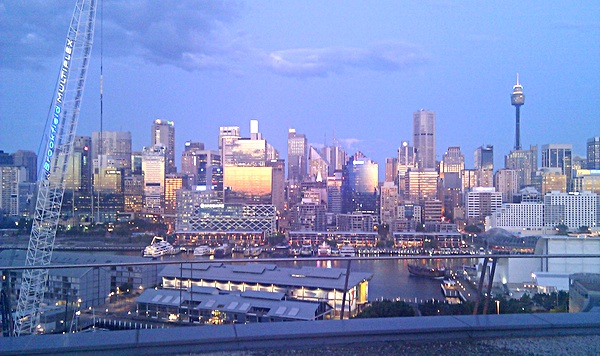
Skywriting has to be one of the lowest forms of advertising, no different from an attention-seeking teenager scrawling his tag over every flat surface within reach. So I guess it’s only appropriate that the low-brow arsehats of commercial radio reckon it’s a good look.
I’ve met commercial radio executives. They’re not the sort of people you’d want to have dinner with, let alone leave with your pets unattended. Like so many who’ve congealed into the uppermost scum layers of the broadcast media cesspool, they’re arrogant beyond belief, filled with their own sense of self-importance.
Writing in The Observer yesterday, John Naughton reckons this attitude is understandable, if no longer acceptable.
What always struck me about [TV’s] senior executives — in both the commercial and public sector — was how smug and self-satisfied they seemed. In a way, this was understandable: they were masters of a particular universe, rulers of a medium that dominated the information ecosystem, dictated the political agenda, and determined the daily habits of a large chunk of the population. At that time, the most powerful apparatchiks in the BBC and ITV were the schedulers — the planners who designed ways of holding the attention of a mass audience. Their craft included tricks like not scheduling some things against stronger competitors; making sure that one had a follow-on that would keep audiences from switching channels over the 9pm watershed; winning the ratings war over the Christmas period and so on. Watching them at work, one realised that effectively they were playing chess –– and that the pawns in their arcane games were the viewers.
Embedded in the corporate DNA of push media like broadcast television is the assumption that viewers are, if not exactly idiots, then passive consumers. The deal is that they receive gratefully what we, the broadcasters, decide to create.
The same for radio. The same tricks to keep listeners from changing that dial before the next 15-minutes ratings measurement slot starts. The same arrogance.
And double same for Australian commercial radio, whose executives grew fat and lazy through the 1990s as they traded metropolitan broadcast licenses for tens of millions of dollars and their testosterone-filled 4WDs cruised the suburbs handing out largesse to the proles. The rumbling and whooshing and laser zaps and deep booming voices of their station promos underlined their self-image as intergalactic heroes.
Broadcast radio is threatened, of course, especially that which does little more than play music now that everyone has a gadget in their pocket that can play whatever music they want, when they want.
It’s becoming even more threatened now that those gadgets are connected to the grid, where they can figure out for themselves what new music we might want to listen to and download it automatically. Or hook into any audio stream on the planet, including those that we and our friends create for ourselves without the help of the music director’s computer-based music scheduling system. You know the one, the one that says it’s 8.50am so we must therefore listen to an up-tempo track from 1996 with a female vocalist, because in the last hour we’ve already had 75% male vocals and instrumentals.
How much are we paying that music director, anyway, when iTunes does the same job for free?
So in the face of this challenge, what is Mix 106.5 FM in Sydney doing to shape its future?
Smoke-pissing its frequency across the sky of one of the world’s most beautiful cities. Ruining that beauty, not just for those vast migrating commuting herds who might conceivably want to listen simultaneous to exactly the same sequence of songs by Diesel, Rihanna and Nickelback as everyone else in the city — yes, that’s what they’re playing right now, inspiring eh? — interspersed with forced cheerfulness, lowest-common-denominator inanities from a B-list comedian and, of course, advertising. Advertising that for the most part hasn’t thought of a more sophisticated strategy to grab our interest than shouting at us.
This sky spam, this moronic vandalism on a glorious summer’s morning just makes you look even more out of touch, Mix 106.5. Just fuck right off. And no, I’m not linking to you.
[Photo: More sky spam by sylmobile, taken just a few minutes ago.]
 I’ll be in Perth on Friday 27 April to present at DigitalMe, one of a series of media140 events, the other two being DigitalBusiness on Thursday 26 and DigitalFamily on Saturday 28 April.
I’ll be in Perth on Friday 27 April to present at DigitalMe, one of a series of media140 events, the other two being DigitalBusiness on Thursday 26 and DigitalFamily on Saturday 28 April.

